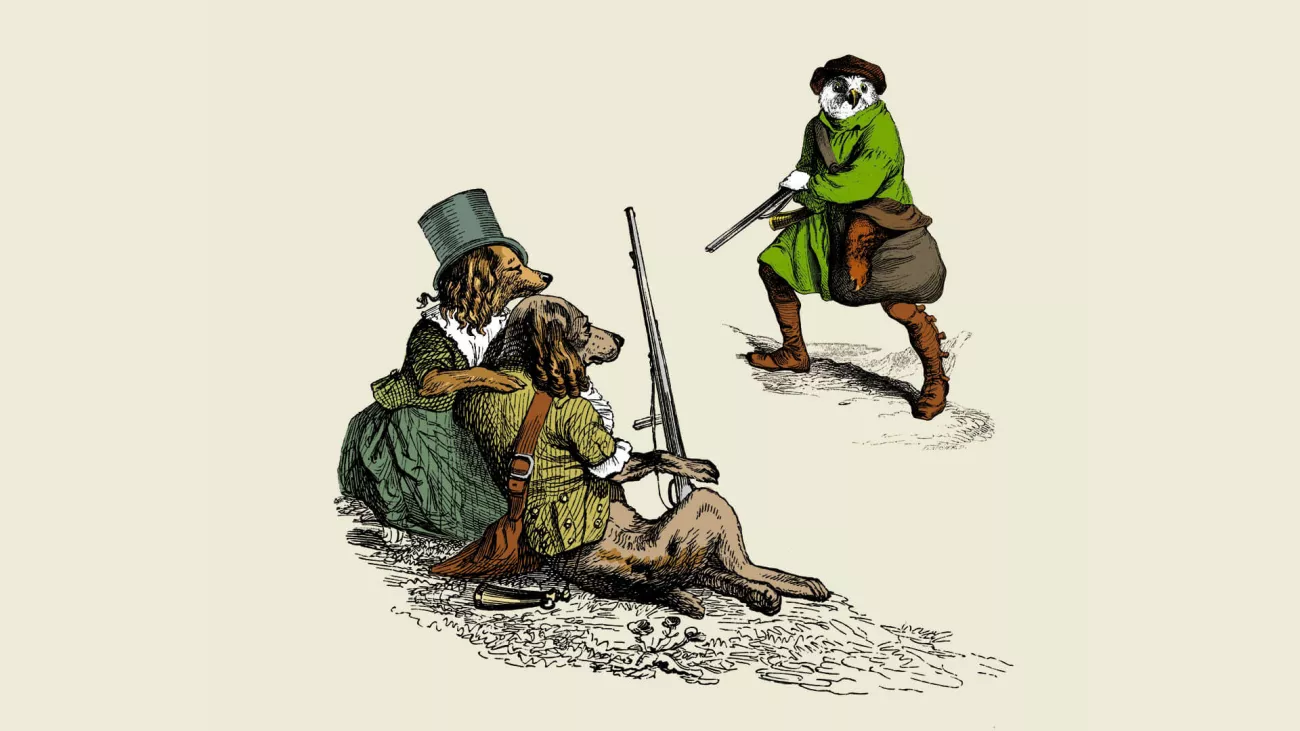Romantic opera in three acts by Carl Maria von Weber. Libretto by Friedrich Kind. Premiered at the Königliches Schauspielhaus in Berlin on 18 June 1821
Performed in its French version translated by Emilien Pacini and Hector Berlioz and recitatives by Hector Berlioz. Premiered at the Opéra de Paris on 7 June 1841

Combining a folk theme, popular accents and a powerfully expressive orchestra with a Mozartian form, in 1821 Weber made the premiere of Der Freischütz a national event. The nourishing forest, isolation, the devil on the lookout, thwarted sentiment, misdeed and forgiveness exhibited all the flavors of German fantasy and affected a society yearning for identity. Three years later, Robin des bois was presented to the Parisians. Enthusiastic over the score, young Berlioz rejected Castil-Blaze’s adaptation and derived from the travesty a new idea of interpretation with a fussy respect rather out of place at the time. When in 1841 the Opéra de Paris decided to stage Der Freischütz, which had become famous after its author died, Berlioz was requested to write the French version by transforming the singspiel into an opera. The integrity of his work, accepted after careful consideration, highlights Weber’s closeness with our opéra comique repertoire and the exceptional posterity of his oeuvre in France.
Act I
In a Bohemian forest in the 17th century, peasants are celebrating the feat of one of them, Kilian, at a target shooting. Their joy turns to mockery at the despair of a hitherto undefeated young huntsman, Max. The prince’s old forester, Kouno, sides with him. He wants Max to succeed him in his office and marry his daughter Agathe. But the prince has arranged a shooting contest for the next day in order to confirm the transfer of rights.
Stricken with doubt, Max listens to the opinion voiced by Gaspard, a sardonic huntsman: could it be that a spell has been cast on him? All the stories seem to strengthen this feeling and Kouno fails to put his mind at rest. While the peasants go dancing, Max surrenders to melancholy and dares not join his betrothed. Gaspard exacerbates his resentment and makes him drink to convince him to resort to magic. Max shoots down a high flying eagle with Gaspard’s hackbut. Gaspard is to provide him with free bullets if he goes down to the Wolf’s Glen that evening. Determined to save his union with Agathe, Max gives his word to Gaspard’s great delight.
Act II
At the forester’s house, Agathe treats her forehead wounded by the fall of a picture her cousin Annette hangs back on the wall. Whereas the latter is in good spirits, the former anxiously prepares her wedding dress: the forest hermit warned her against great danger. She awaits Max ardently. The young bridegroom endeavors to put on a bold front but the coincidence between the fall of the picture and his shooting down the eagle hastens his departure.
At the bottom of the frightful Wolf’s Glen, Gaspard begins to cast the magic bullets. He conjures Samiel, the devilish Black Hunter, and promises to bring him a new victim who will release him from his allegiance. Overwhelmed with visions that make him hesitate, Max reluctantly walks down into the glen. As Gaspard casts the seven magic bullets, the whole of nature seems to revolt with horror. Max falls prey to Samiel.
Act III
The next day Max’s feats sustain the conversations among huntsmen. But he only has one bullet left to win the final test as Gaspard wasted three of them on purpose, knowing that the last one is always guided by the devil.
In her chamber, Agathe prepares her wedding gown and prays with devotion. She tells Annette of her nightmare in which she was a dove shot down by Max. To mock her superstition, Annette tells her a frightening story with a comical ending then tries to comfort her. The bridesmaids deliver the bridal wreath. But the open box reveals a gruesome surprise: a funeral wreath. Agathe regains her courage by adorning herself with the white roses the hermit gave her.
At the hunters’ camp the festivities are going full swing. Prince Ottokar invites Kouno to produce his future son-in-law in the final test. Feverish Max vows it is the last time he resorts to magic. The prince instructs him to shoot a dove. Max fires. Gaspard and Agathe, who appeared suddenly, collapse. The wicked huntsman was hit but the hermit protected the innocent maiden. Samiel comes for his victim’s soul while Max confesses his misdeed. Resolved to banish him, the prince gives in to the hermit’s magnanimous advice to impose a probational year upon Max to cure him of doubt. All the protagonists are united in prayer.
Direction musicale, Sir John Eliot Gardiner • Mise en scène, Dan Jemmett • Sophie Karthäuser, Andrew Kennedy, Virginie Pochon, Robert Davies / Alexander Ashworth, Matthew Brook, Gidon Saks, Markus Hollop, Samuel Evans, Christian Pelissier • The Monteverdi Choir • Orchestre Révolutionnaire et Romantique
See all the castJeudi 07 Avril 2011 - 20:00
Samedi 09 Avril 2011 - 20:00
Lundi 11 Avril 2011 - 20:00
Mercredi 13 Avril 2011 - 20:00
Vendredi 15 Avril 2011 - 20:00
Dimanche 17 Avril 2011 - 15:00
Salle Favart
115, 95, 70, 40, 15, 6€
Présenté dans sa version française, avec la traduction d’Emilien Pacini et Hector Berlioz et les récitatifs d’Hector Berlioz
Créée à l’Opéra de Paris le 7 juin 1841
Cast





















The Monteverdi Choir
Orchestre Révolutionnaire et Romantique
Production, Opéra Comique
Coproducteur associé, Palazzetto Bru Zane – Centre de musique romantique française



















